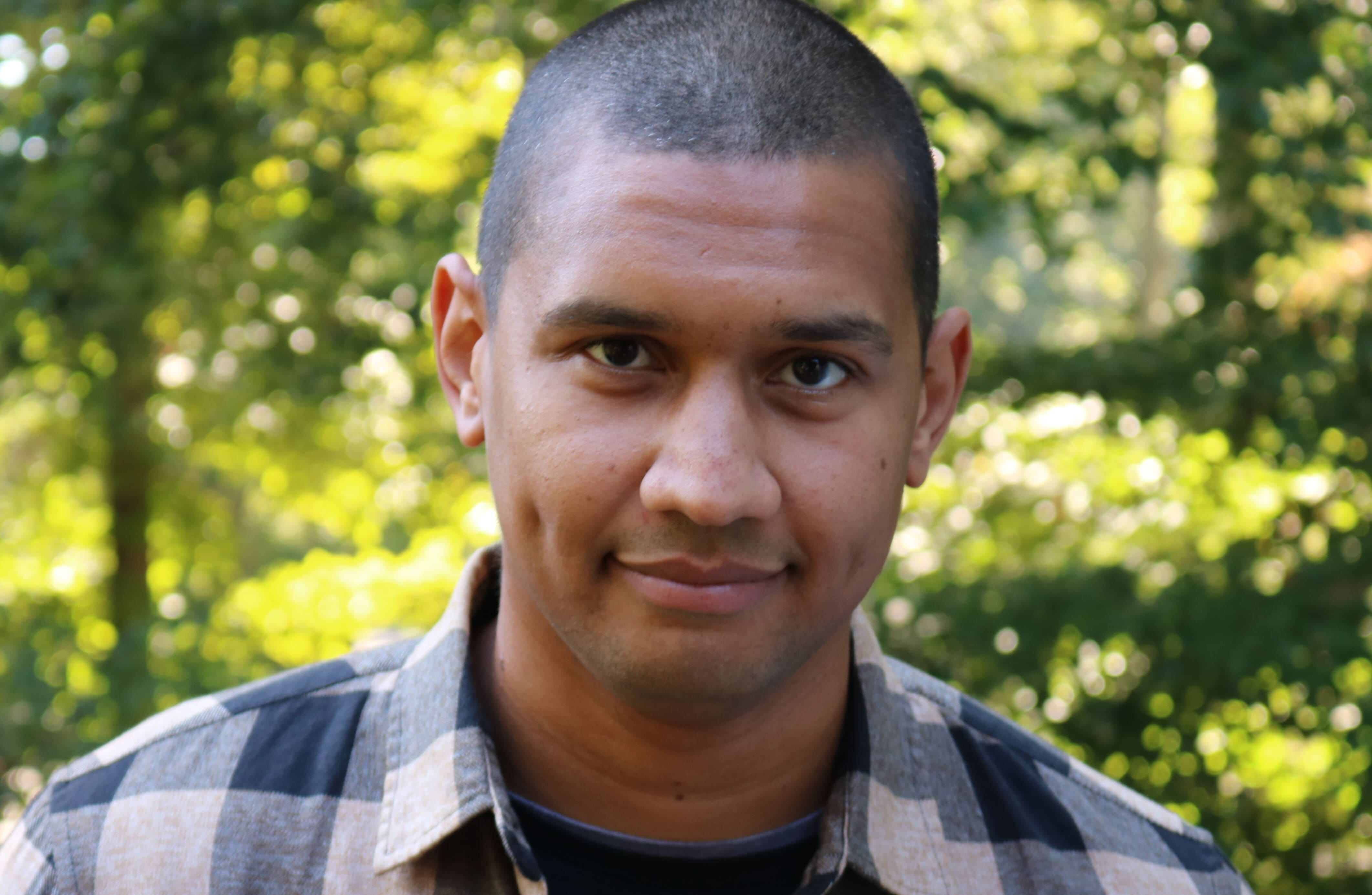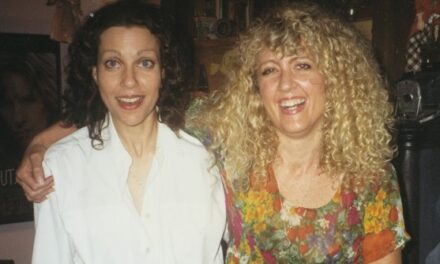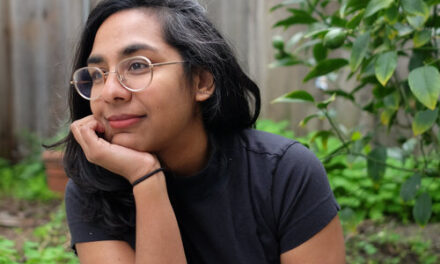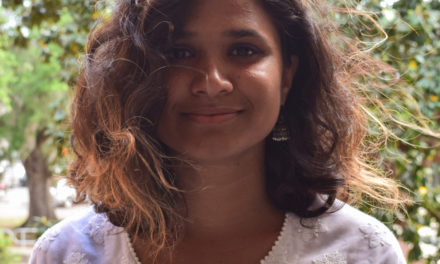
Assistant Editor Emily Rose Cole: The quiet but deeply uncomfortable tension that permeates Chase Burke’s “Favoring the Nightcap” will be recognizable to anyone who has ever suffered under the hard hand of generational trauma. This piece shows us not an act of violence, but the after-effects of the violence: the stitches sutured in the angry father’s calf, the stilted conversation on the car ride home, the repetitive shelling of peapods that “split like knuckles cracking.” We see, also, that, while building a physical piece of furniture is easy, it’s the emotional rebuilding that’s far more difficult.
Favoring the Nightcap
After putting his foot through the glass top of the coffee table—the latest in his run of furniture casualties—Dad said from the passenger seat that he was amenable to our insistence on therapy, though he said it with that derisive emphasis. We were quiet in the car for a while. I was driving; my mom and brother sat in the cramped back seat.
Simon leaned forward. “How many stitches?”
“Twenty-three,” I said.
Dad opened, then closed, the glove box, its little light a dull flicker in the evening dark. “Watch the road,” he snapped.
I had gone back with him at the urgent care while Mom and Simon shared a plastic travel cup of weak coffee in the waiting room. I’d watched, captivated, as the doctor threaded stiff sutures through the tears in Dad’s calf. His eyes closed, Dad had sucked sharp breaths whenever the needle went in, the paper crackling beneath him on the table.
Later that night Mom and I shelled peas into a bowl in the kitchen sink. No one was hungry. Dad was in their bedroom with the door closed. “You know nothing will change if he goes,” I said.
Mom took a long drink from her plastic cup, emptied of coffee and refilled with her usual, then rested her arms on the counter. Her hands hovered over the sink. She looked toward me but past me.
“Thank you for driving,” she said.
I swallowed a rock of anger, nodded. We shelled the peas in near silence, the pods splitting like knuckles cracking, until the bowl was full.
I didn’t think of this night until many years later, when my wife, with a kind of last-straw intensity I hardly recognized, gave me an ultimatum after I had a little accident with the bookshelf, the lamp, the dog. She’d had enough of my bad habits, my excuses, my justifications.
“You’re going,” Erin said. She was dressed in scrubs for work. “Take care of it today.”
“Where?” I said. I felt dazed, there in bed in Thursday’s early light, by both her furious insistence and the seasick memory of Dad, unsteady, assembling a coffee table, a nightstand, a chair. I shut my eyes. “Right,” I said.
Like my father, I’ve never favored coffee, but I finished Erin’s dregs after I called in sick. I removed the books from the broken bookshelf and dragged it to the curb. I bought a cheap one at Walmart and assembled it in the living room. The dog watched from the couch. I put the books back out of order, but I would fix that later. Through the window I saw someone load the old bookshelf from the curb into their truck. The new bookshelf, I realized, was the wrong color. I wouldn’t fix that.
Chase Burke is from Florida. He is the author of the fiction chapbook Lecture (Paper Nautilus, 2020), and his stories can be found in Glimmer Train, Sycamore Review, Salt Hill, Yemassee, Western Humanities Review, and DIAGRAM, among other journals.
For more miCRo pieces, CLICK HERE











